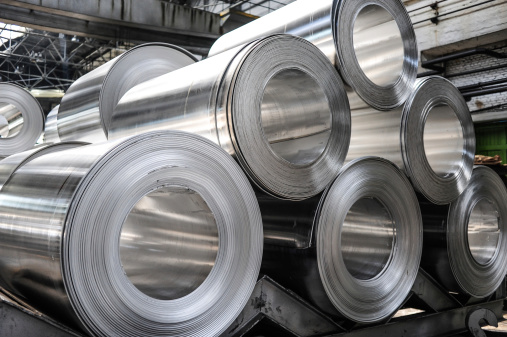Commodities & Metals
Why Alcoa Could Be Making One Massive Mistake in a Breakup
Published:
Last Updated:

As much as Alcoa and CEO Klaus Kleinfeld want everyone to accept that what Alcoa calls the upstream business is sound and on a growth path, the reality is a little more complicated. Kleinfeld touts the upstream company’s five different businesses. In an interview with CNBC, Kleinfeld noted that the company has reshaped its upstream business over the past few years, closing or selling off mining properties and smelters, and that it has moved its production costs down the cost curve, in addition to increasing its sales in the higher-priced spot market.
In the company’s value-add business, Kleinfeld sees continued growth in the North American auto market and a growing presence in aerospace. And while it is true that new car sales are strong right now, projected sales out through 2017 or 2018 indicate that either 2016 or 2017 will be the peak year for new car sales.
In the commercial aircraft market, both Boeing and Airbus have years worth of backlog and both are considering raising production of their single-aisle, narrowbody jets to more than 60 a month by as soon as 2019 or so. Skeptics note that a significant portion of the orders the two aircraft makers have taken may be soft, and if emerging market economies fail to return to a growth path, some orders may be cancelled.
Even if Alcoa remained a single company, there would have been a few challenges ahead. As two companies, one with promising if uncertain growth prospects and the other at the whim of the commodities market, it appears that Alcoa is dividing itself into a high-risk commodity business that will get no help from the value-add business.
In order for the separation to pay off for existing Alcoa shareholders, the commodity-based business is going to have to continue to rein in costs, probably shed more assets, and hope that commodity prices don’t continue to slide. If everything works out as Alcoa’s management reckons it will, this could happen. If not, though, the upstream business will be adrift on its own without the life-preserver of the value-add business.
Unless the value-add business doubles, it cannot make up for the loss to shareholders of the upstream business. Like we said, this breakup could be a massive mistake.
One final note regarding the value-add company. It will be competing with Precision Castparts Corp. (NYSE: PCP) in the aerospace business. Warren Buffet’s Berkshire Hathaway Inc. (NYSE: BRK-A) recently announced that it would acquire Precision Castparts for nearly $38 billion, Buffett’s largest acquisition ever. Do you think Buffett and company did not take a look at Alcoa’s value-add business before making the decision to make that purchase?
Alcoa’s shares traded up about 3.6% at $9.40 around noon. The share price moved steadily, if slowly higher most of the morning.
ALSO READ: 8 Great Value Stocks With Solid Dividends Under 10 Times Earnings
Are You Ahead, or Behind on Retirement? (sponsor)
If you’re one of the over 4 Million Americans set to retire this year, you may want to pay attention. Many people have worked their whole lives preparing to retire without ever knowing the answer to the most important question: are you ahead, or behind on your retirement goals?
Don’t make the same mistake. It’s an easy question to answer. A quick conversation with a financial advisor can help you unpack your savings, spending, and goals for your money. With SmartAsset’s free tool, you can connect with vetted financial advisors in minutes.
Why wait? Click here to get started today!
Thank you for reading! Have some feedback for us?
Contact the 24/7 Wall St. editorial team.